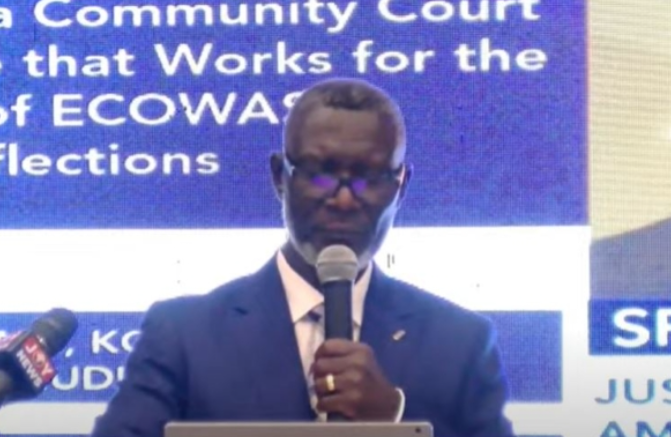The President of the ECOWAS Court of Justice, Justice Edward Amoako Asante, has explained the critical requirements for individuals seeking to access the Court.
Speaking at a public lecture hosted by the UPSA Law School on the theme of building a community court that truly serves the citizens of ECOWAS, Justice Asante outlined the liberal but structured access criteria that ensure the Court remains open, fair, and effective.
Justice Asante explained that for any case to be admitted, the applicant must meet three key conditions: “First, they must establish prima facie evidence that their human rights have been violated by a member state. Second, the action must not be anonymous — the individual or entity bringing the case must clearly identify themselves. Third, the matter must not be pending before another international court or tribunal,” he indicated on Sunday, April 27.
He stressed that once these three conditions are satisfied, access to the ECOWAS Court becomes straightforward and accessible to all, including individuals, groups, NGOs, and civil society organizations.
Importantly, Justice Asante clarified that the ECOWAS Court’s protocol, as adopted by member states, does not require the exhaustion of local remedies before an action is brought. This position, he noted, aligns with the Court’s broader mission to preserve liberal access for victims of human rights violations across the region.
“The Court has consistently interpreted the protocol to mean that victims are not obligated to first exhaust domestic court processes, especially in instances where such remedies are non-existent, ineffective, or unduly prolonged,” Justice Asante said.
He further noted that the ECOWAS Court is not an appellate court over national courts and should not be treated as a secondary forum after failed domestic attempts.

